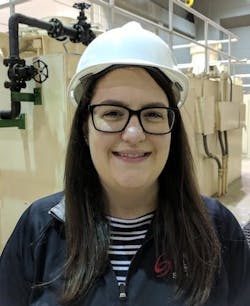About the author:
Amy McIntosh is former managing editor of WQP. For more information, email [email protected].
With midterm elections held early this month, Americans have politics on the brain. In the water quality industry, national concerns are at the forefront, from regulation of emerging contaminants to imposed tariffs on goods imported from China. Depending on where you live, there likely are local issues that impact your business. One benefit of living in a democracy is that citizens have access to their public officials, who want to hear from them.
At the Eastern Water Quality Assn. Conference, I sat in on a session led by David Loveday, global government affairs director for the Water Quality Assn. (WQA), about how to effectively communicate with legislators. Rather than deliver a PowerPoint presentation full of talking points, Loveday led a discussion with the group.
Some attendees had experience working with legislators, while others didn’t know how to get started. I jotted down some tips from Loveday and those in the crowd, and then reached out to WQA for more insight.
One attendee mentioned that when setting up face-to-face meetings, you will likely end up speaking to an aide. Kathleen Fultz, global regulatory and government affairs manager for WQA, said this should not be discouraging.
“Meetings may be conducted with a representative or senator’s staff person covering the issue area,” she said. “This is an invaluable opportunity because staff will often remain on the hill after their boss has left office and will remember your message.”
Have your talking points at the ready, and bring a business card and any data or other important collateral.
Loveday also suggested inviting legislators to your business, where they can meet your employees and get a feel for what you do.
After your meeting, follow up via email with a thank you, as well as electronic versions of the printed materials you left behind. Fultz suggested taking a photo with the policymaker and including it in your follow-up email.
WQA hosts a fly-in in Washington, D.C., each year, giving members a chance to bring their concerns directly to their legislators. But according to Fultz, not all meetings require a trip to the nation’s capital. Many state and regional water quality associations host similar events locally, and you’re always welcome to set up meetings on your own.
“Meeting with lawmakers at their district office is a great way to advocate for pro-industry, pro-business policies in one’s home district,” Fultz said.
